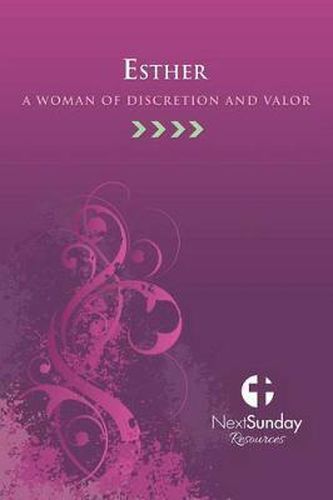Readings Newsletter
Become a Readings Member to make your shopping experience even easier.
Sign in or sign up for free!
You’re not far away from qualifying for FREE standard shipping within Australia
You’ve qualified for FREE standard shipping within Australia
The cart is loading…






Some five centuries before Christ, the biblical narrative travels east, out of Israel to the kingdom of Persia-modern-day Iran. King Ahasuerus, or Xerxes, ruled the Middle East and the Persian Gulf at the apex of world domination. God’s people, the Jews, were in exile, yanked violently away from their homeland. There, in a foreign land, one of the great stories of Jewish deliverance unfolds, precipitated by a beautiful young woman named Esther. The account that bears Esther’s name is one of the more enigmatic books of the Old Testament. Once part of the Kethubim or miscellaneous writings of Judaism, it was one of the last books admitted into the canon of Scripture, and only then with editorial adjustment. Why the delay? First, a clear candidate for authorship has never emerged. More importantly, God is not mentioned anywhere in the entire volume. This is a unique characteristic of Esther when compared to the other biblical writings. Nevertheless, this appears to be the author’s intent, whoever he or she may have been: invoked or not invoked, God is present. The book of Esther is not a record of historical facts as such. Rather, it is a magnificent narrative that refuses to interpret life as being driven by coincidence or happenstance. While the silence of God is all too normative for life, this does not mean God is not nearby or actively at work behind the scenes. In the otherwise unknown characters of Esther, Haman, and Mordecai, we trace the movement of the divine hand as God collaborates with God’s risk-taking people to rescue them from the hand of their enemies. At the conclusion of the book of Esther, the reader is introduced to the Jewish festival of Purim. This was a national celebration honoring the Jewish deliverance from extermination. The word Purim means chance or lot the rolling of the dice. Yet, this escape from destruction was not the accomplishment of a lucky political wager. It was through the providence of God and the courage of the Jewish queen Esther.
$9.00 standard shipping within Australia
FREE standard shipping within Australia for orders over $100.00
Express & International shipping calculated at checkout
Some five centuries before Christ, the biblical narrative travels east, out of Israel to the kingdom of Persia-modern-day Iran. King Ahasuerus, or Xerxes, ruled the Middle East and the Persian Gulf at the apex of world domination. God’s people, the Jews, were in exile, yanked violently away from their homeland. There, in a foreign land, one of the great stories of Jewish deliverance unfolds, precipitated by a beautiful young woman named Esther. The account that bears Esther’s name is one of the more enigmatic books of the Old Testament. Once part of the Kethubim or miscellaneous writings of Judaism, it was one of the last books admitted into the canon of Scripture, and only then with editorial adjustment. Why the delay? First, a clear candidate for authorship has never emerged. More importantly, God is not mentioned anywhere in the entire volume. This is a unique characteristic of Esther when compared to the other biblical writings. Nevertheless, this appears to be the author’s intent, whoever he or she may have been: invoked or not invoked, God is present. The book of Esther is not a record of historical facts as such. Rather, it is a magnificent narrative that refuses to interpret life as being driven by coincidence or happenstance. While the silence of God is all too normative for life, this does not mean God is not nearby or actively at work behind the scenes. In the otherwise unknown characters of Esther, Haman, and Mordecai, we trace the movement of the divine hand as God collaborates with God’s risk-taking people to rescue them from the hand of their enemies. At the conclusion of the book of Esther, the reader is introduced to the Jewish festival of Purim. This was a national celebration honoring the Jewish deliverance from extermination. The word Purim means chance or lot the rolling of the dice. Yet, this escape from destruction was not the accomplishment of a lucky political wager. It was through the providence of God and the courage of the Jewish queen Esther.